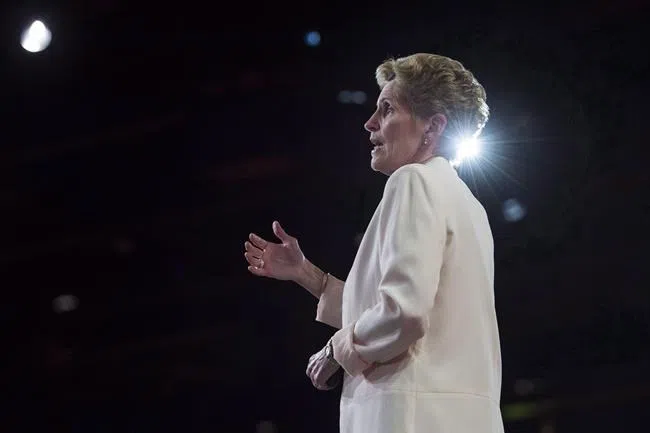
Party leaders to square off in first debate ahead of Ontario election
TORONTO — The leaders of Ontario’s three main political parties will square off on the same stage for the first time Monday, just days before the official start of the province’s spring election campaign.
Liberal Premier Kathleen Wynne, Progressive Conservative Leader Doug Ford and New Democratic Party Leader Andrea Horwath will all participate in the live debate in Toronto, which will be broadcast on City TV.
It’s the first of three debates scheduled before the June 7 vote and observers say it will give voters a clear view of how the parties and their leaders intend to campaign once the writ drops two days later.
“The (party) strategists have had several months to think about how to package their appeals, which voters they want to collect to their side and how to try to depict the opposition’s limitations against their own virtues,” said Cristine de Clercy, an associate political science professor at Western University. “We’ll see a small template of their messaging.”
